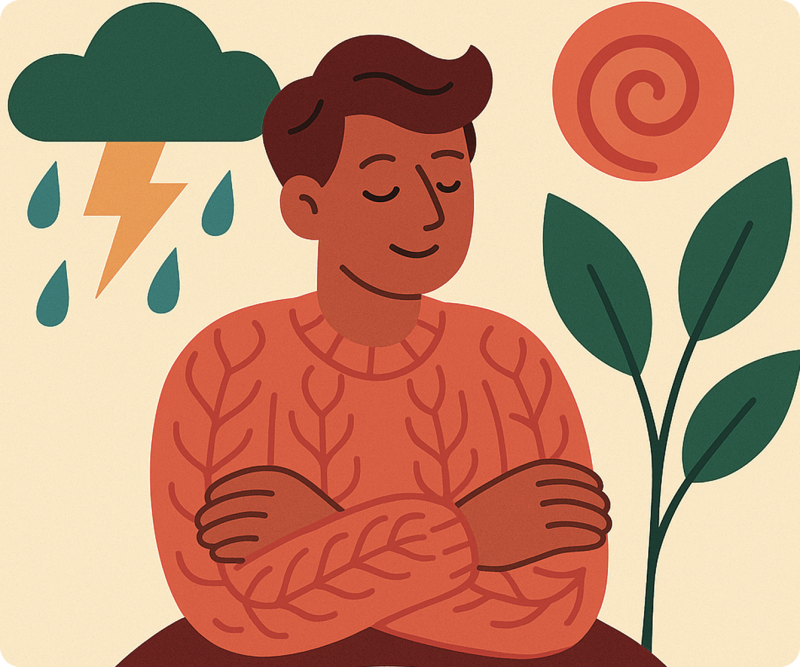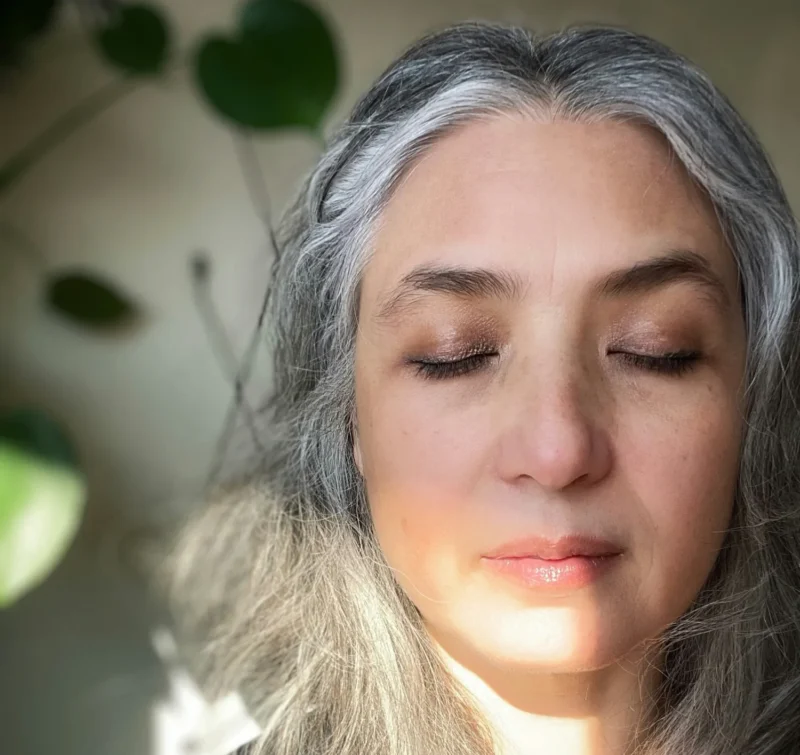
Bipolar Disorder
Bipolar disorder is a complex mood disorder involving shifts between depressive and manic (or hypomanic) states. These changes can be intense and disruptive, affecting energy, behaviour, sleep, relationships and overall functioning. While bipolar disorder cannot be cured, it can be effectively managed with a combination of psychological therapy, medication, and lifestyle strategies.
Common signs & symptoms
Bipolar disorder is typically characterised by episodes of depression, mania, or hypomania. Some people experience clear cycles with stable periods in between, while others may have more rapid or mixed fluctuations.
Symptoms of depressive episodes may include:
- Low mood, hopelessness or feelings of emptiness
- Loss of interest in previously enjoyable activities
- Fatigue or lack of energy
- Difficulty concentrating or making decisions
- Sleep disturbance
- Changes in appetite
- Suicidal thoughts
Symptoms of manic or hypomanic episodes may include:
- Elevated or irritable mood
- Inflated self-esteem or grandiosity
- Decreased need for sleep
- Racing thoughts or rapid speech
- Distractibility
- Increased goal-directed activity or restlessness
- Impulsivity, risk-taking, or poor judgement
- In some cases, symptoms of psychosis (e.g. delusions or hallucinations)
Hypomania involves similar symptoms to mania, but they tend to be less severe and do not result in psychotic features or require hospitalisation.
What causes Bipolar Disorder?
The exact causes of bipolar disorder are not fully understood. However, a combination of genetic, neurochemical, environmental and psychological factors is believed to contribute.
These may include:
- Family history of bipolar disorder or other mood disorders
- Neurobiological differences in brain chemistry and function
- Stressful life events or trauma
- Disrupted circadian rhythms (e.g. poor sleep hygiene or shift work)
- Substance use
- Certain personality traits (e.g. sensitivity to stimuli or strong emotional reactivity)
Episodes may be triggered by stress, sleep disruption, or changes in lifestyle, even when mood has previously been stable.
Types or subcategories
There are several subtypes of bipolar disorder:
- Bipolar I Disorder – defined by at least one manic episode, often with episodes of major depression.
- Bipolar II Disorder – involves at least one hypomanic episode and one major depressive episode, but no full manic episodes.
- Cyclothymic Disorder (Cyclothymia) – a milder pattern involving frequent hypomanic and depressive symptoms that do not meet the criteria for full episodes.
Each person’s experience of bipolar disorder is unique, and treatment should be tailored to their individual pattern of symptoms and triggers.
What you can do
Managing bipolar disorder involves both preventative strategies and active interventions during high-risk times. Useful strategies include:
- Maintaining a consistent sleep schedule and daily routine
- Monitoring your mood and recognising early warning signs
- Avoiding substance use
- Engaging in regular physical activity
- Building a strong support network
- Working with mental health professionals to manage symptoms and reduce relapse risk
Education and self-awareness are essential. Understanding the condition helps you make informed decisions about treatment and manage the disorder more effectively over time.
How we can help
At Seed Psychology, our team provides warm, knowledgeable and evidence-based support to help you live well with bipolar disorder.
Our psychologists can assist with:
- Cognitive Behavioural Therapy (CBT) – to explore patterns of thought and behaviour that contribute to mood instability
- Psychoeducation – to build understanding of bipolar disorder and its management
- Emotion regulation and relapse prevention strategies
- Monitoring mood and recognising early warning signs
- Family therapy – where appropriate, to support loved ones in understanding and responding to bipolar symptoms
We work collaboratively with your psychiatrist or GP as part of a multidisciplinary care plan. Therapy is a vital complement to medical treatment—helping you gain insight, manage mood swings, and improve your relationships and quality of life.
If you or someone you care about is struggling with bipolar disorder, Seed Psychology is here to help.
Book an appointment with one of our experienced psychologists at our Brunswick East clinic or via telehealth across Australia.
Through connection,
change is possible
Our compassionate team at Seed Psychology is here to help you regain your wellbeing and navigate life’s challenges with greater confidence and clarity. Connect with us to book an appointment with a psychologist in our Brunswick clinic or via telehealth Australia-wide.
Available resources
Meet our amazing team of therapists
Our diverse team of psychologists offer individual, couples, and online therapy, as well as assessments. Beyond their expertise, they bring humanity and care, providing respectful, affirming support tailored to each person’s unique experience.
Freqeuently asked questions
-
You do not need a referral to see a Psychologist at Seed Psychology. However, if you’d like to claim a Medicare rebate, you will need a Mental Health Care Plan (MHCP) from your GP. With a MHCP, you may be eligible for rebates on up to 10 sessions per calendar year. These sessions can be used at any psychology clinic of your choice. To access Medicare psychology rebates, book an appointment with your GP and ask for a Mental Health Care Plan. Most referrals begin with 6 sessions, with the option to access 4 more after a review. Referrals can also be provided by a psychiatrist or paediatrician.
-
Yes, we offer in person sessions at our Brunswick East practice and secure online appointments. Our online services make it easy to connect with your Psychologist from anywhere, offering flexibility without compromising on care. Whether you attend in person or online, you’ll receive consistent, high-quality support.
-
To book an appointment, simply use our booking form, or call our client care team on 9388 8113.
-
Our goal is to make mental health care approachable, inclusive, and clear—so you always know what to expect.
Individual Therapy Sessions
- Private clients (no referral): $255 – $285
- Clients with a MHCP: $230 – $285
- Medicare rebates: $96.65 – $141.85 per session (depending on the clinician)
- Private clients (no referral): $255 – $285
-
At Seed Psychology, your safety and wellbeing are our highest priorities. While we are here to support you through regular therapy sessions, we are not a crisis service and may not be available outside of scheduled appointments. If you or someone you care about is in immediate danger, experiencing a mental health crisis, or needs urgent support, it’s important to seek help straight away through the appropriate emergency or crisis services. You can find a list of trusted organisations and services here that can provide immediate support when you need it most.











